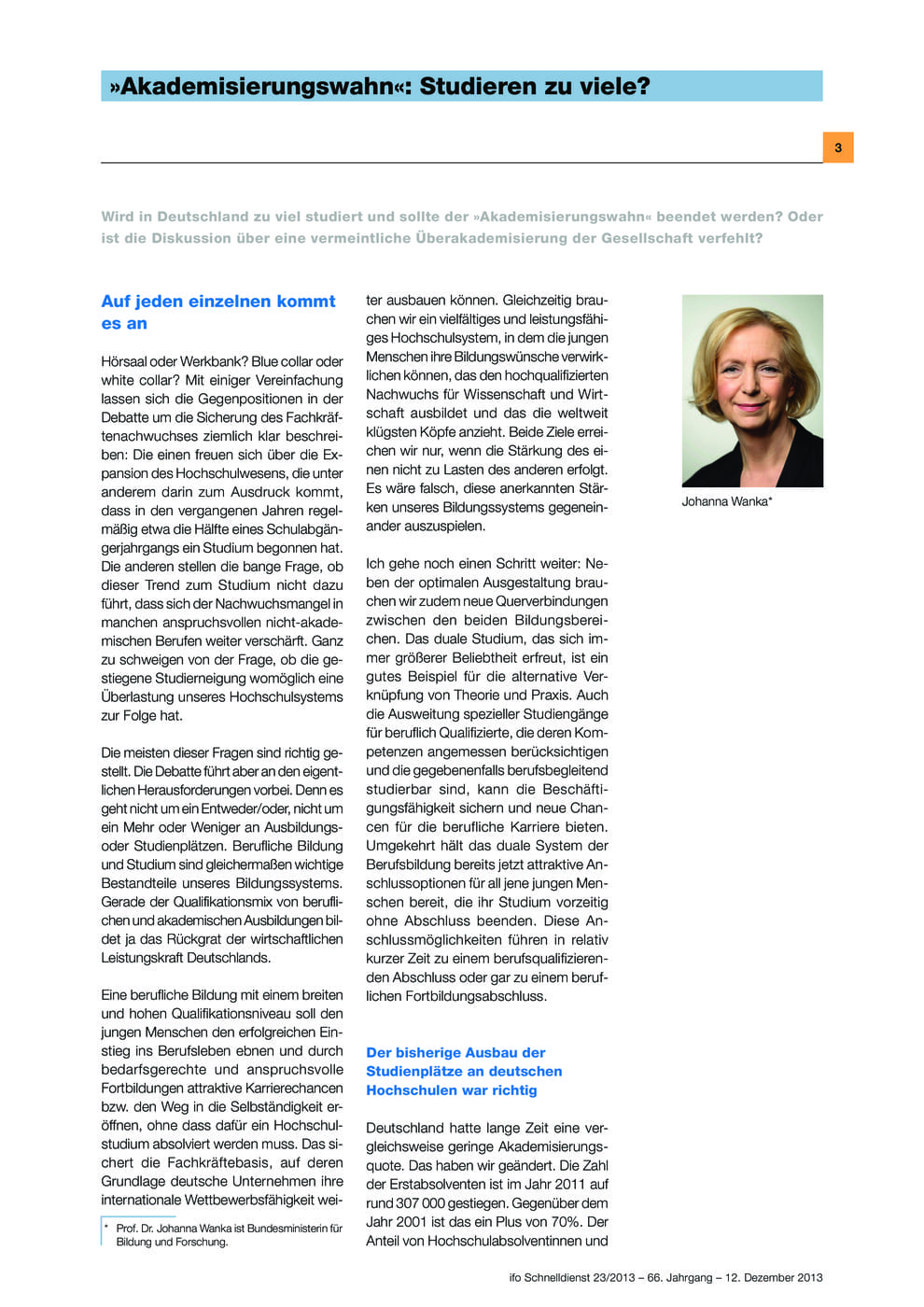“Academisation mania”: Are There Too Many Students?
ifo Institut, München, 2013
ifo Schnelldienst, 2013, 66, Nr. 23, 03-24

Are there too many students in Germany or is the discussion of an alleged over-academisation of society misguided? Johanna Wanka, German federal Minister for Education and Research, highlights that it is not about an either/or. Professional education and studies are equally important parts of the German education system. Hans-Peter Klös and Axel Plünnecke, Institute of the German Economy in Cologne, discard the “over-academisation thesis”. Education policy should be far more oriented towards greater permeability between professional and academic education. Joachim Möller, IAB and University of Regensburg, does not see any indication of over-academisation. The labour market situation of highly-qualified individuals has not deteriorated. A restriction of access to colleges and universities would not be justifiable in any respect. Wolfram F. Richter, Technical University of Dortmund, and Kerstin Schneider, Bergische University of Wuppertal, question whether the added-value of a university degree promised at an individual and society level corresponds to estimates, especially by the OECD. The decision-relevant rates of return were systematically exaggerated by the published rates due to insufficient differentiation between the costs of lost wages and freedom. Ludger Wößmann, Ifo Institute and University of Munich, stresses that higher education pays off. The PIAAC results show that every additional year of education represents almost 10% higher income in the German labour market. In macroeconomic terms, a better level of education for the population emerges as the most important deciding factor of long-term economic growth and thus of social prosperity. According to Stefan Wolf, Südwestmetall, the knowledge society needs both university graduates and specialist workers. From the point of view of employers, it seems naive to wish to strengthen the dual training system by weakening universities or artificially limiting the number of individuals entitled to attend university.